Last week, I took a look at how the new social networking site Pinterest encourages and facilitates copyright infringement. Today, I actually have an example of the kinds of issues that can anger people whose works are “pinned” (infringed upon) on the Pinterest.com site.
In my blog history over the weekend, there was a record of an incoming link from the Pinterest.com site. I followed the link back to Pinterest and discovered that my article was mentioned in the comments of a pinned image. I’m going to have to paraphrase the discussion, as the page has since been removed, but it went something like this:
Pinner 1: What’s the problem? I pinned this right from Flickr, from your PUBLIC page. If you don’t want it to be seen, don’t put it on your PUBLIC page. Stop being such a party pooper. If you stop complaining, I might remove it.
Pinner 2: ( Something about respecting the artist )
Pinner 1: ( Some response brushing off the concern )
Pinner 3: Be nice and be an adult. (link to my blog)
At this point, I decide to join Pinterest so that I can contribute to the discussion.
Me: Just because you link to their Flickr page does not mean you have the right to upload their work here. If you notice, the artist’s works are marked “All Rights Reserved” which means you are violating the TOS of Pinterest by granting them the following rights: ( quote of TOS ). So, you are, in effect, infringing copyright.
Pinner 3: Thanks, Sean.
Pinner 1: Then, Pinterest is the problem, not me.
Me: I know avoiding responsibility is popular in today’s internet culture, but you can’t absolve yourself here. You violated the TOS and infringed on the artist’s rights.
Pinner 1: Well, I guess you have a class action suit on your hands.
Pinner 4: Listen lady. All this photographer did was kindly ask you to remove the picture. She didn’t call you names and was only forced to turn you in when you became belligerent to her request. Looking at all your boards, especially one as ridiculous as this, you have PLENTY of pins. Why be so mean to her original request?! Actually grow up and end this pride-filled, stubborn anger you apparently have about this picture and remove it. Your actions and abuse of usage here on Pinterest are the very kind of actions that will cause this site to be sued in the future, so yes, you ARE partly to blame.
At this point, the offending image was removed, either by Pinner 1, or by Pinterest.
Here’s the important part though. The image was originally “pinned” by “Pinner 1” on her board “Ridiculous Pregnancy Pictures”. The board is a collection of images that the member has pinned from a variety of artists, with the intent to poke fun, and encourage comments in the same vein. Things like “hahahahahaha it’s even more disturbing that more than one woman went with this idea.” and such. The pinboard is filled with lots of images, from Flickr pages that are marked “All Rights Reserved”.
The image in question that was pinned was from a Flickr set “Creative Maternity Workshops”. I think it is obvious that the Flickr user runs, or participates in, some sort of Photographic Education business. Is it legal for Pinterest to copy this artist’s work to their servers for the purpose of what is essentially negative advertising? Not only can it cast unwilling participants in a false light, it can also defame the artist or reflect negatively on her business.
Don’t forget, Pinterest encourages it users to traverse the web, “pinning” whatever they like. Here is the email I received upon joining:
YOU are the newest member of Pinterest, a community to share collections of things you love. We’re excited to have you as a member and can’t wait to see what you pin.
A few tips to get the most out of Pinterest:
– Install the bookmarklet. It lets you add a pin from any website with just one click.
– Follow a few more pinboards. After all, Pinterest is as much about discovering new things as it is about sharing.
– Pin carefully! As one of the first members of Pinterest, your pins will help set the tone for the whole community. Use big images, write thoughtful descriptions, and pin things you really love. Also, no nudity 🙂
Thanks for joining and happy pinning!
– Ben and the Pinterest Team
Notice they encourage the user to install the bookmarklet for ease of “pinning” content from the web. They also want the user to “use big images”. No taking the thumbnails of others’ works – they want the full size. Not a word about how not to infringe upon the rights of others. How not to steal things others have created. Nothing.
Can the user hide behind “fair use“? This particular example does appear to be a case of “using a work in order to poke fun at or comment on the work itself”. Parody and satire are well protected actions in our history. From Wikipedia, “fair use is a doctrine that permits limited use of copyrighted material without acquiring permission from the rights holders”. However, I don’t believe the user can “fair use” as a way to get around the Pinterest terms:
We may, in our sole discretion, permit Members to post, upload, publish, submit or transmit Member Content. By making available any Member Content through the Site, Application or Services, you hereby grant to Cold Brew Labs a worldwide, irrevocable, perpetual, non-exclusive, transferable, royalty-free license, with the right to sublicense, to use, copy, adapt, modify, distribute, license, sell, transfer, publicly display, publicly perform, transmit, stream, broadcast, access, view, and otherwise exploit such Member Content only on, through or by means of the Site, Application or Services. Cold Brew Labs does not claim any ownership rights in any such Member Content and nothing in these Terms will be deemed to restrict any rights that you may have to use and exploit any such Member Content.
You acknowledge and agree that you are solely responsible for all Member Content that you make available through the Site, Application and Services. Accordingly, you represent and warrant that: (i) you either are the sole and exclusive owner of all Member Content that you make available through the Site, Application and Services or you have all rights, licenses, consents and releases that are necessary to grant to Cold Brew Labs the rights in such Member Content, as contemplated under these Terms; and (ii) neither the Member Content nor your posting, uploading, publication, submission or transmittal of the Member Content or Cold Brew Labs’ use of the Member Content (or any portion thereof) on, through or by means of the Site, Application and the Services will infringe, misappropriate or violate a third party’s patent, copyright, trademark, trade secret, moral rights or other proprietary or intellectual property rights, or rights of publicity or privacy, or result in the violation of any applicable law or regulation.
“Fair Use” applies to the publication of copyrighted works, it does not allow one to grant unlimited use rights of something they do not have the rights to. Remember, Pinterest users, by “pinning”, you state “you either are the sole and exclusive owner of all Member Content … or you have all rights, licenses, consents and releases that are necessary”. When you “pin” someone else’s work, you do not meet that requirement, IMO. And the minority of uses on Pinterest are parody or satire. As a whole, Pinterest is a commercial venture ( eventually profitable ), whose content and product is mainly the work of others, used without permission.
So, the question is, can Pinterest use “fair use” as a “loophole” for its continued encouragement of copyright infringement? Can I post the first act of “Star Wars” on my site and then lead a discussion on it? Can I post a .pdf of “Harry Potter and the Sorceror’s Stone” as a jump off point for an online bookclub? Why does Pinterest ( and similar ) think posting an entire image for comments is different? What do you think?

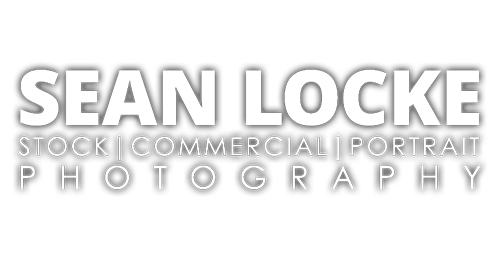
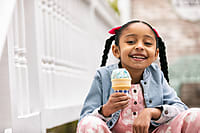
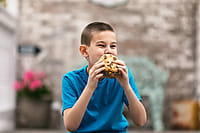
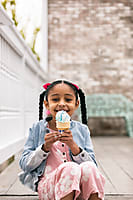

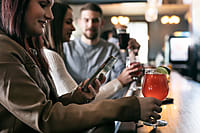

Pinterest are not alone. Tumblr and even Google + have shared images where it is near impossible to find out who the creator was. Or “All Rights Reserved” off Flickr. The more times a photo is Repinned or Reshared the more difficult it is to find out who the creator was. Then if the original sharer / pinner removes a photo, what happens to the reshared / repinned versions?
I think you make strong points, Sean. Pinterest is pretty to look at, but in violation of “Fair Use”, etc. I’m torn because I like it, in that it’s a pretty magazine sort of experience. Like a Lucky Magazine for anything you might be interested in. Wonder if it will last, given your points.
[…] has written a follow-up on his blog, More Thoughts on Pinterest. This is a very interesting read because of two things. Sean tells the story about a real case of […]
Interesting article. Pinned it! ;D
I posted on this on Facebook and it has caused quite a bit of controversy that you might be interested in:
http://www.facebook.com/bkwine.per/posts/300389633343204
Have you read about this http://bits.blogs.nytimes.com/2012/02/07/is-pinterest-already-making-money-quietly/?
Yes, and look at what their affiliate marketing person says: “It is worth bringing up that we work with many other sites in this way, and that this is a common monetization approach for social discovery sites. We do encourage our publishers to disclose how they monetize, and certainly Pinterest has made it clear in their T&C that they have the right to modify links and and content added to their site. They are driving immense amounts of new traffic to merchants sites, and providing a free and beautiful service to their users, uninterrupted by intrusive banner ads. This is great on all fronts. ”
So, they’re driving immense amounts of traffic (ie., receiving immense amounts of referral fees) and the people whose work they are profiting from receive none.
[…] to add: Here is another article I wrote after an actual incident on a Pinterest […]
Wow, I had no idea this is what I was doing. As an innocent bystander, I also think of it much as a “pretty magazine” as Risamay said, and simply pin pictures I am attracted to so I can look at them. I pin food photos so I can make the food in them. After reading this, I feel guilty for not paying attention to the fine print. It certainly wouldn’t be the same experience if I had to get the permission of every artist, but with all said, I am close to deleting my account. I’m an artist too, and completely understand.
But like I said, I’m guessing I’m not the only one who simply has an eye for cool s*** and has no intention of copyright infringement on my mind!
[…] Pinterest is protected by copyright law since they don’t actually create the pin as well as if fair use protects Pinterest. In both cases Sean believes that Pinterest is in violation of the […]
Do not cover your ideas..just sayin..
http://pinterest.com/pin/60165344991380190/
Good points well made Sean. Thanks for highlighting this.
This is interesting stuff (just come here via cozyhomemaking.typepad.com). I’m not a professional photographer, and my blog is relatively new with a very small readership. So I was pretty excited when a published author “pinned” one of my photos. There was a link to my blog and it brought me a few extra hits. Also, I’ve looked at other bloggers’ “pin boards” before and it’s a nice way to see a collection of images. But you’ve really got me thinking now. I’m a musician and would be very unhappy about a site that allowed and encouraged this type of use of my compositions or performances. And I’m pretty sure Pinterest would not exist without the copyright infringement – nobody would bother if they had to get permission for every “pin” – so the site as well as the users are responsible. I have a couple of folders on my hard drive where I put photos that I find online for inspiration. I keep a note of the source and never distribute the photos. Is that OK?
Sure. A: that’s personal use, and 2: that’s what your browser does already. It stores a copy on your hard drive for you to view. There is no law about length of time for storage of downloaded/viewed work, afaik.
@ Nina – It’s a very interesting parallel with music. Photography seems to have landed in a peculiar situation, where people often don’t think that there is a creator with a copyright behind each picture. In all these discussions about photo infringements, where people often think “sharing without permission is OK”, it is very interesting to replace “photography” with “music” and see how the reasoning works.
As you say – think of a Pinterest that “shared” music clips instead. How would people look on that from a copyright perspective?
[…] a follow up post, he discusses the idea of fair use. Is it fair use to share a photographer’s “all […]
[…] http://seanlockephotography.com/2012/02/06/more-thoughts-on-pinterest/ […]
From Redbubble admi
“Quick heads up. We have been looking at the Pinterest issue and share concerns about their TOS. To this end we have removed the “pin” button from RedBubble and are looking at our policies at what we might post to the official RedBubble account. Like many we think Pinterest provides useful functionality but there are some specific legal issues we are not currently comfortable with.”
For a very different view on the Fair Use Doctrine see:
http://www.centerforsocialmedia.org/
Any specific article there?
[…] site serait plus qu’aléatoire, notamment parce que le site permet de republier et de stocker des reproductions intégrales des images, dans une bonne définition. Ces copies constitueraient des versions concurrentes des images […]
Hi Sean,
Thanks for posting this. I think you raise some really good points here.
Anyway, if you want to disallow Pinterest from getting the images, Awan posted this super easy fix that will stop Pinterest from accessing your images: http://www.bloggingehow.com/2012/04/how-to-stop-pinterest-to-access-your.html
Yes, you can do that but it is really irrelevant.
It’s like saying “you must put a sign on the door of your home saying ‘don’t steal my things’, otherwise it is free for anyone and everyone to come and steal your furniture, your books, eat your food etc”
The only logical thing would be to require a metatag to *allow* pinning. Not the other way around.